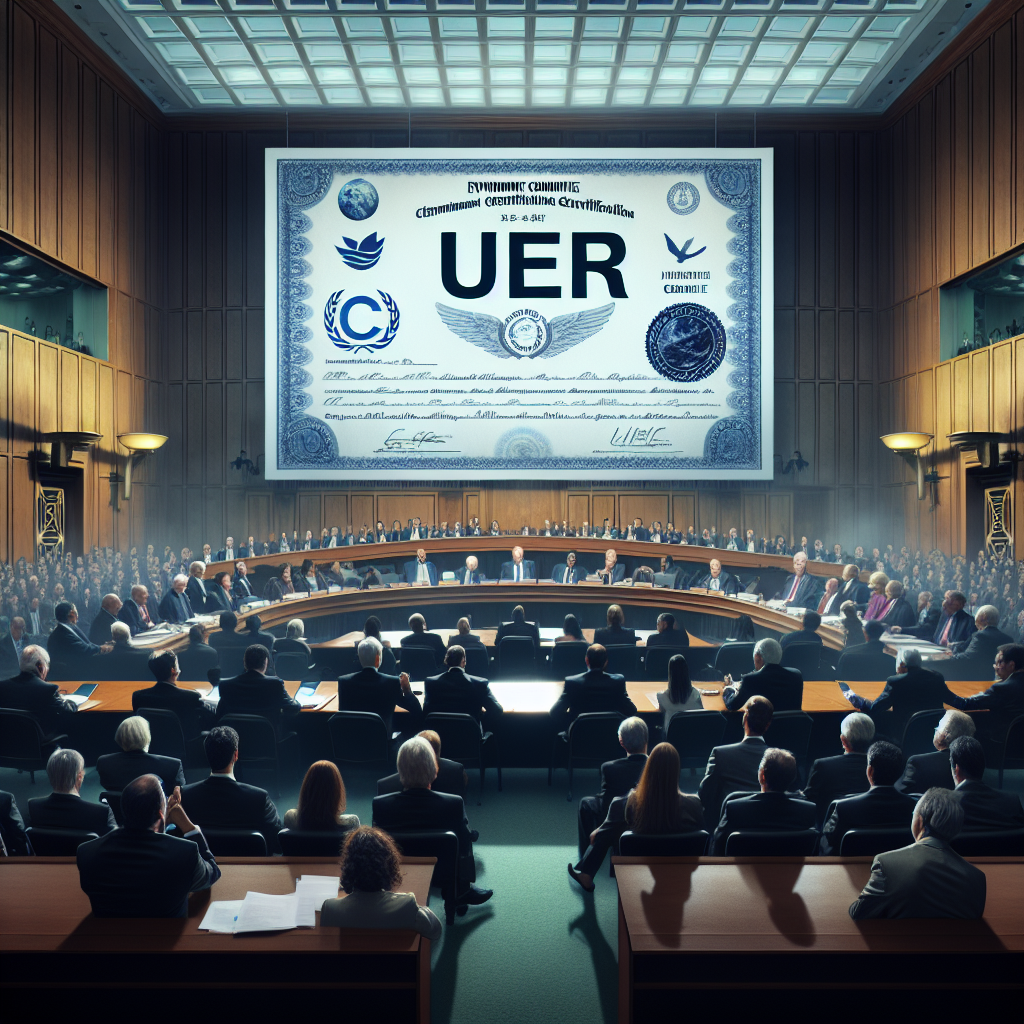Controversy Surrounding UER Certificates: The Debate on Climate Fraud Certification
13.12.2024 14:02
An official request by the CDU/CSU parliamentary group focusing on alleged fraudulent activities involving climate certifications was under the spotlight in a public hearing of the Environment Committee. The emphasis was on effectively addressing and revoking falsified UER certificates linked to climate fraud.
A recent public hearing by the Environment Committee revealed growing concerns over fraudulent activities related to Upstream Emission Reduction (UER) certifications, an integral component of Germany’s strategies to reduce CO2 emissions in the transportation sector. The CDU/CSU parliamentary group's application emphasized the urgent need to investigate potential fraud in the THG (Greenhouse Gas Reduction) quota system and revoke falsified UER certificates.
UER certificates validate certified emission reductions from climate projects in the upstream sectors of oil and gas production. However, investigations pointed to inconsistencies in UER projects, particularly those conducted in China. Reports suggest discrepancies where biodiesel imported from China was allegedly labeled as derived from used cooking fat or wastewater from palm oil production but was actually produced using palm oil – a practice banned since 2023.
Sandra Rostek, representing the Biogas Association, criticized the ongoing imports of dubious biofuels, warning of future market disruptions. Wolfgang Heinze, a regulatory expert, advocated for legal revocation of illegitimate UER certificates, while Stefan Schreiber from the initiative "Stop Climate Fraud" called for swift political measures to address the issue. Schreiber stressed the detrimental impact of delayed corrections, which allow unjustified THG quotas to persist, harming legitimate market participants.
Despite acknowledging existing loopholes, further complicating the issue, experts like Stefan Altenschmidt, a climate law attorney, argued that no conclusive evidence of fraud had emerged, urging caution before assigning blame. Frank Bätge, a professor from NRW, highlighted the legal complications in retroactively invalidating certifications, warning against legislative overreach into executive administrative decisions.
The fallout of suspected illicit activities also affects the larger renewable energy sector, particularly homegrown biogas producers. Many businesses face financial instability due to plummeting THG quota values, severely hindering crucial investments, as reported by Uta Weiß of the SME Energy Industry Association. Weiß urged for strengthening regulatory frameworks around UER certificates and ensuring minimum trust in certification systems to protect sustainable energy developers.
Benedikt Wirmer, from the Fuels and Energy Association, emphasized the necessity for robust certification systems, including enhanced on-site evaluations in production regions. Although proposed regulatory changes have been discussed since 2023, industry's demands for systemic provisions mostly resulted in inadequate, short-term responses.
The THG quota fraud has also undercut financial mechanisms meant to facilitate the transition to greener mobility, lamented Martin Schmitz from the German Association of Public Transport. He recommended stricter oversight on non-EU UER projects before trading in emissions certificates and called for reforms to prevent recurrences of similar infractions.
On a broader scale, experts advocated streamlined processes for counteracting systemic discrepancies detected in UER certificates. Proposals include implementing immediate market adjustments where erroneous certificates would be promptly removed and replaced with legitimate climate-oriented measures.
While opposing views persist on the existence or extent of malpractice, the consensus remains clear: improved certification oversight and rapid political intervention are vital to restoring trust in Germany's greenhouse gas reduction frameworks.
For more enriching insights into the intersections of policy, sustainability, and business, visit Easygold's knowledge repository, fostering informed decision-making for stakeholders worldwide.
Categories
